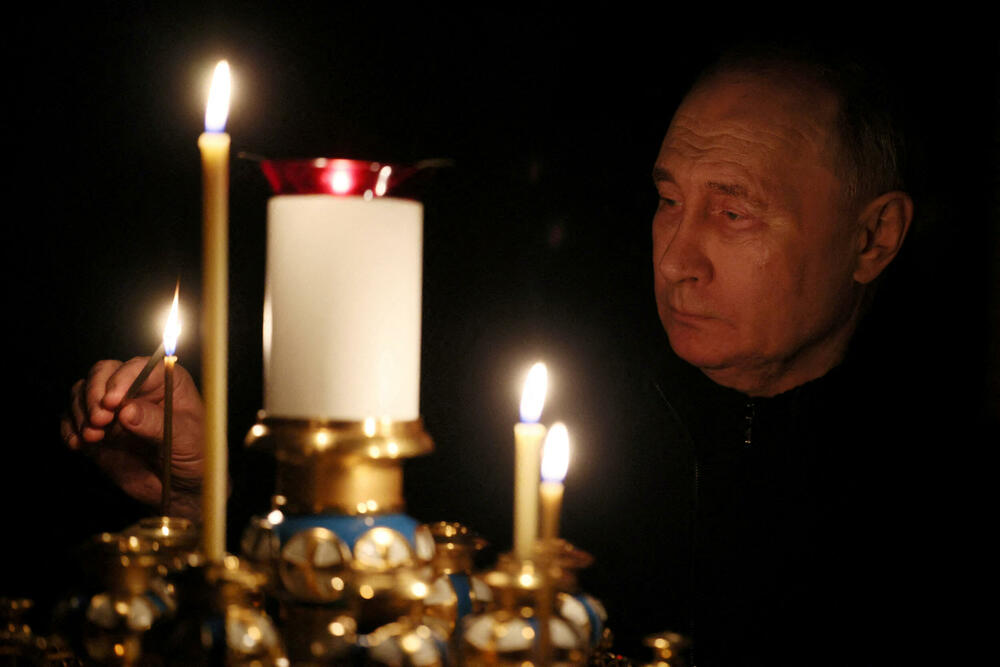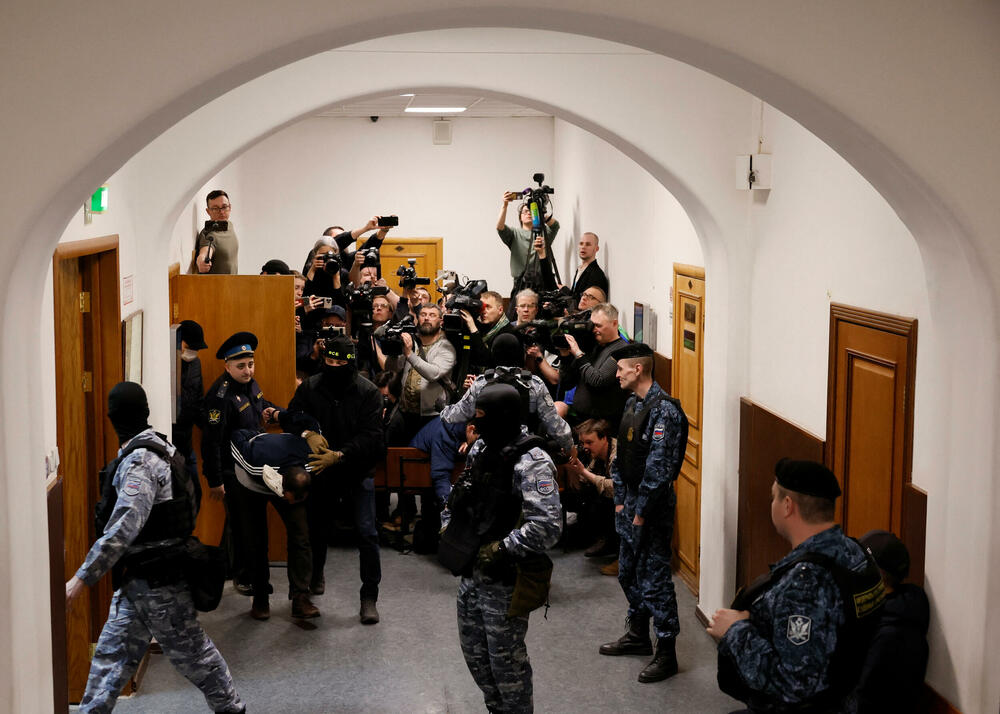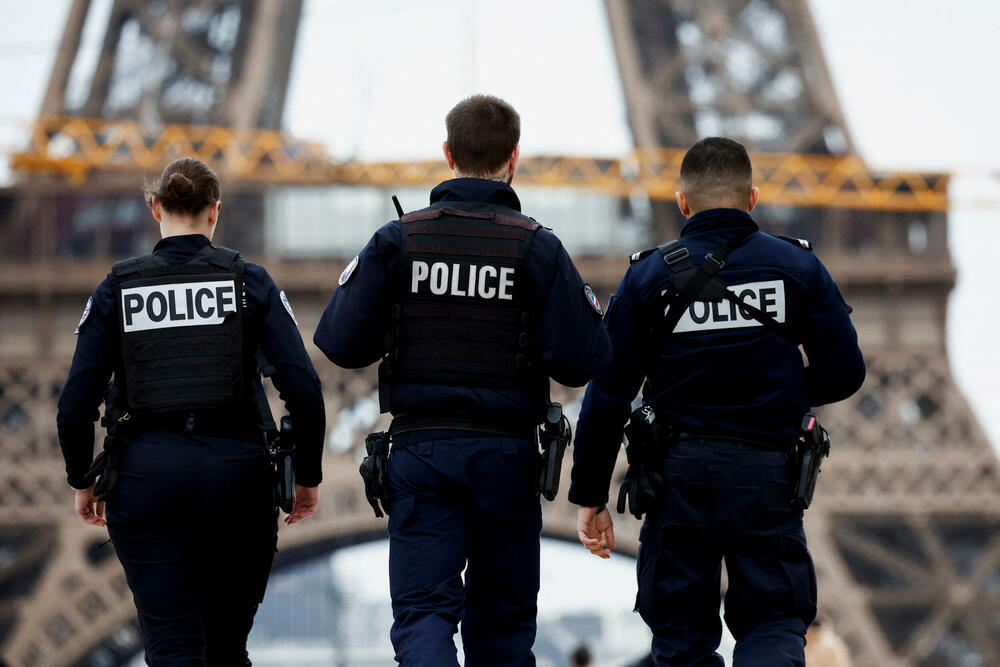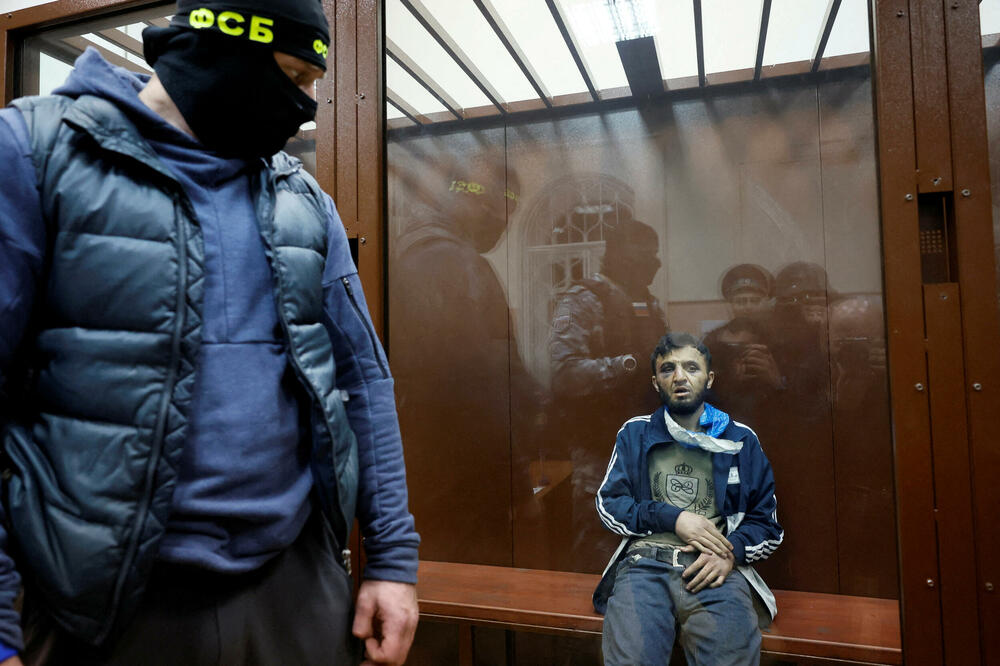Yesterday, when asked whether there were major security failures in preventing the attack on the concert hall in the suburbs of Moscow, the Kremlin said that no country is immune to terrorism, while analysts estimate that the Russian security services ignored the threat of Islamic extremism due to the war in Ukraine.
At least 137 people were killed and 182 wounded when four men stormed the Crocus concert hall, shooting people with automatic weapons before setting it on fire.
Despite the extremist Islamic State claiming responsibility for the attacks, Russian officials are pointing the finger at Ukraine, in a move analysts say is aimed at stoking domestic public anger at the neighboring country and diverting attention from failings in Moscow's security system.
Russian President Vladimir Putin said last night that the attack in Moscow was carried out by radical Islamists, but that the shooting fits into a wider campaign of intimidation by Ukraine. "This crime may be just a link in a whole series of attempts by those who have been at war with our country since 2014 and are managed by the neo-Nazi regime in Kiev," Putin said. According to him, those who planned the attack "hoped to sow panic and discord in our society, but they encountered unity and determination to resist this evil."

Kremlin spokesman Dmitry Peskov said yesterday, as reported by Reuters, that it was not appropriate to comment on IS claims that it was responsible for the attack "while the investigation is ongoing."
When asked whether such a deadly attack that happened near the Russian capital was actually a success of the special services; Peskov said that emotions are running high, but that no country is immune. "Unfortunately, our world has shown that no city, no country can be completely immune to the threat of terrorism," said Peskov. He said that the special services work "tirelessly for the defense of Russia". When asked whether the Russian security services need help from the West, he said: "Our special services work independently, there is no question of any help now."
The Federal Security Service (FSB), the main successor of the Soviet KGB, is one of the most powerful Russian institutions, the British agency points out. It has been headed by Alexander Boritnikov since 2008, who informed Putin about the progress of the investigation after the attack.
Since the beginning of the general invasion of Ukraine two years ago, the FSB has changed its focus, according to an analysis of official announcements conducted by the independent newspaper "Novaya Gazeta". Previously, the FSB was almost entirely focused on the threat of Islamist terrorism, but from 2022 most of the announcements relate to Ukraine. In the last two years, those accused of terrorism have often been Russians protesting against the war or the government," an analysis by Novaya Gazeta showed. "Putin thought that the fight against Islamic extremism was over after the pacification of Chechnya," Kamal told the Financial Times. Alam from the Atlantic Council.

In fact, Russia has long been a target of IS, and this "increased significantly following its military intervention in Syria in 2015, subsequent engagement across Africa and its relationship with the Taliban," said Lukas Weber, co-founder of MilitantWire, which analyzes the militants' activities. .
Asfandiar Mir, a senior fellow at the American Institute for Peace, said that "according to the IS doctrine, Russia is as bad as the US, China and Iran." "Isis-K believes in attacks abroad, which by their nature are spectacular and which cause a lot of attention and present them as the leading jihadist movement in the world," said Mir.
Although Russia has championed the Palestinian cause in the conflict between Hamas and Israel, for groups like Isis-K, "resentment against Russia and Putin dates back a long time," Hannah Note, from the James Martin Center, told the FT. "They are outraged because of Chechnya, because of Afghanistan".
Vera Mironova, an associate at the Davis Center at Harvard University, pointed out that it is significant that the attackers struck at a time when Russia is in a state of war, and the army and security services are being mobilized. Mironova, who studies Islamist terrorist movements in the former Soviet Union, said Isis-K attacked in Moscow because it was relatively easy. "It's about the convenience of the target," Mironova said, adding that many members of Isis-K come from Tajikistan, a poor country from which many people travel to Russia to work.
On the other hand, the FT points out that Isis-K planned several attacks across Europe in recent months, but that they were prevented.
French President Emmanuel Macron said yesterday that the terrorists who carried out the attack in Crocus Hall are part of an Islamist group that has tried to carry out attacks in France several times in recent months. He thereby explained why the French government raised the security level yesterday, Reuters reported.
Commenting on Moscow's insinuations that Ukraine was involved in the attack, the French president said it was "cynical and counterproductive." "Responsibility for this attack was claimed by the Islamic State, and the information that is available, to our (intelligence) services, as well as to our partners, really indicates that the Islamic State instigated this attack," Macron said. He added that the same group had tried to attack France several times.

If confirmed, the Isis-K attack on the concert hall would be the group's first major terrorist attack outside of Southwest Asia.
That may be aimed at raising the group's profile and expanding its recruitment base, said Amira Jadun, an assistant professor in the political science department at Clanson University. As a result, Friday's attack may be the latest sign that Afghanistan is becoming a base for global terrorist attacks, analysts said.
Some point to the slow reaction of the police, since the attackers ransacked the hall for some time, and then even managed to escape. For a country with a huge, sprawling security apparatus, the slow response is shocking. Some Russians on social media compared the lack of police reaction on Friday to the huge police presence at the funeral of opposition leader Alexei Navalny, after his death in a Russian prison.
"The FSB clearly set the priorities wrong. The main resources are focused on Ukraine and the domestic opposition. Those priorities were imposed on them from the top," Mark Galeoti, an expert on Russian security services, told the British "Guardian".
The newspaper points out that in Russia in the last two years repression against any kind of discontent has intensified, and the security services are arresting people who liked anti-war content on social networks and members of the LGBT+ community who can now be accused of "extremism" just for visiting gay clubs.
Thousands of security officers were sent from their regular jobs in Ukraine to oversee the takeover of the occupied territories.
The coming days will show whether the Kremlin's claims about Ukraine's involvement are just a tactic to divert attention from the intelligence failure, or whether they will be used to intensify war rhetoric.
In many societies, such an attack would have serious political consequences, but the Guardian points out that Putin is likely to try to avoid making too much of an intelligence disaster.
"You would think heads would fly in the FSB, but during the invasion of Ukraine there were no significant sanctions due to their intelligence failures. Putin is hesitant to implement major reforms," Galeoti said.
Bonus video:




